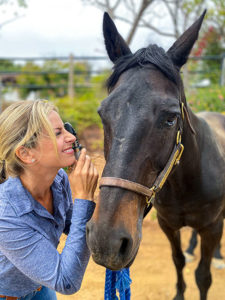Second Onslow County, N.C., Horse Tests Positive for EEE

The North Carolina Department of Agriculture and Consumer Service has confirmed a third positive case of Eastern equine encephalitis for 2018, the Equine Disease Communication Center (EDCC) reported July 26.
“The 5-year-old mare located in Onslow County and reported as having been recently vaccinated was euthanized,” the EDCC said. “This is the second case of EEE confirmed in Onslow County in 2018.”
A viral disease, EEE affects the central nervous system and is transmitted to horses by infected mosquitoes. Clinical signs of EEE include moderate to high fever, depression, lack of appetite, cranial nerve deficits (facial paralysis, tongue weakness, difficulty swallowing), behavioral changes (aggression, self-mutilation, or drowsiness), gait abnormalities, or severe central nervous system signs, such as head-pressing, circling, blindness, and seizures. The course of EEE can be swift, with death occurring two to three days after onset of clinical signs despite intensive care; fatality rates reach 75-80% among horses. Horses that survive might have long-lasting impairments and neurologic problems. Once a horse has been bitten by an infected mosquito, it can take three to 10 days for clinical signs to develop
Create a free account with TheHorse.com to view this content.
TheHorse.com is home to thousands of free articles about horse health care. In order to access some of our exclusive free content, you must be signed into TheHorse.com.
Start your free account today!
Already have an account?
and continue reading.

Related Articles
Stay on top of the most recent Horse Health news with


















